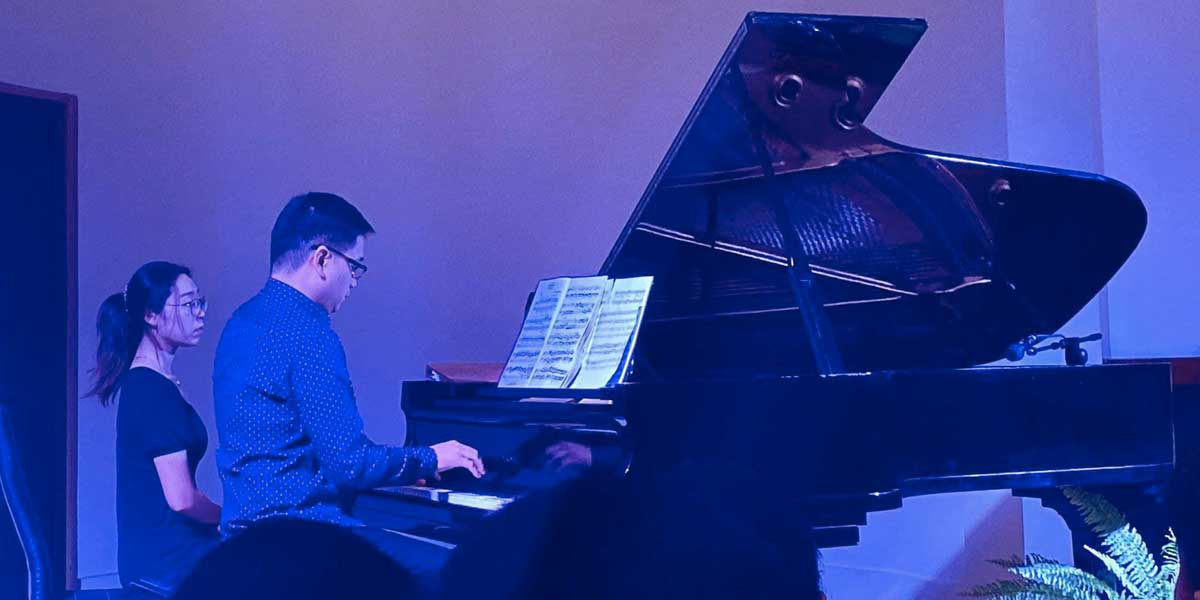
By John Anthony S. Estolloso
WHILE POP CULTURE would identify Sergei Rachmaninoff’s compositions mostly with his Vocalise or that melancholic eighteenth Paganini variation so overtly used in the 1980 romantic film Somewhere in Time, the obscurity that the generic audience subscribes to the rest of his repertoire is not worthy of the Russian composer’s legacy and contribution to our modern musical sensibilities. This year marks his 150th birth anniversary, but what else do we really know about Rachmaninoff?
For all his urbane contemporaneity, he was wont to deplore the cerebral quality of his century’s music. Even with the technical musical prowess and the modernity of his sounds, the composer was still purported to have argued that modern music ‘seems to create not from the heart but from the head.’ He observed that composers cannot ‘exalt’ their works, that ‘they meditate, protest, analyze, reason, calculate and brood, but they do not exalt.’ Despite the sophistication of his compositions, musical sentiment must trump sense for Rachmaninoff.
The broad spectrum of Russian music that found its way to his compositions – from sacred songs to symphonic masterpieces – speaks of this exaltation. The Ilonggo audience was treated to an eclectic glimpse of this in the evening of December 4: a packed Museum of Arts and Cultural Heritage (MACH) of the University of the Philippines witnessed pianist Clement Acevedo’s performance of the obscura of Rachmaninoff – and one can sense from the bewildered silence, a modicum of confusion of what the heck was all that rising, ebbing, and thundering waves of sound from the instrument.
Taking the limelight of the evening was Rachmaninoff’s Chopin Variations for solo piano. Built upon a rather simplified theme from one of Chopin’s preludes, the composition develops into twenty-two unique combinations and arrangements, showcasing the full harmonic possibilities that can be extracted from the piano. If only to exhibit his command of musical theory and the rudiments of composition, Rachmaninoff transformed the basic musical phrase into dazzling figures of sonority and virtuosity, testing the technical skill of Mr. Acevedo and demanding from him the necessary nuances to give off the Russian flavor and context of the music.
The structure of theme and variations is familiar for most classical composers and Rachmaninoff profoundly maximizes it to its limits. Beginning with a lethargic introduction which Mr. Acevedo approached with subtle delicateness, the entire work progresses through various phases of musical rephrasing and reiteration.
In some of the variations, the listener can detect hints and shades of Bach-like fugal passages, almost geometric in structure; among others, the accented crashing of chords interspersed with arpeggios and scales whirring up and down the keyboard highlighted the stentorian display of the pianist’s technical skill. Ironically, there is a clear disregard for any memorable melody: the haziness of the ‘hummable’ parts of the music seemed to remind the listener of Rachmaninoff’s musically avant-garde zeitgeist.
Opening the second part of the programme was the first of the composer’s set of 12 Romances, Op. 14 (I Wait For Thee), as graciously sung by tenor Jomel Garcia to Mr. Acevedo’s accompaniment. Mr. Garcia’s lyrical voice – as a Russian composer might have amiably approved – underlined the song’s heartfelt poetry, almost surfacing a Tolstoian stoicism in the singing. The Polka Italienne that followed – as arranged for four hands and performed with much gusto together with Dr. Gerardo Vicente Muyuela, musical director of the University of San Agustin’s conservatory – gave the audience a sharp hint of Rachmaninoff’s range in composition.
Last on the programme was the 1931 version of the composer’s Sonata No. 2. Removing the gaps between movements, Mr. Acevedo plows through the entire composition without the irritating sustained fortissimos and unbridled pedaling usually employed by the unskilled musician. On the contrary, subtlety of nuance and clarity of phrasing shone through the performance. Audience members have been heard to quip that the delicate yet idyllic characteristic and intensity of the sounds produced were almost of recording quality – and this writer concurs.
In acquainting the Ilonggo audience with the lesser-known works of Sergei Rachmaninoff, Clement Acevedo’s performance that evening made full sense of the composer’s sentimentality. In its entirety, the recital was a formidable exhibition of technical skill and musical stamina: suffice it to say that the piano nearly surrendered at the last few notes of the performance.
[The author is the subject area coordinator for Social Studies in one of the private schools in the city; the photo used is from Daily Guardian.]




















